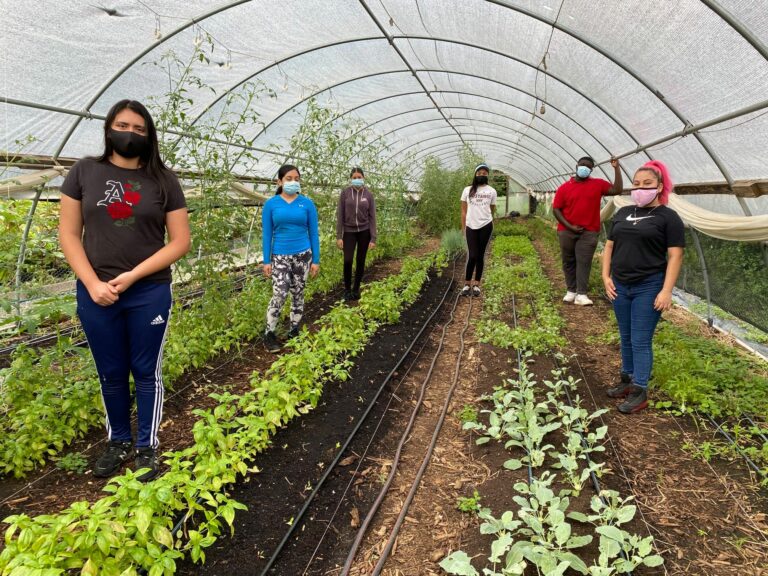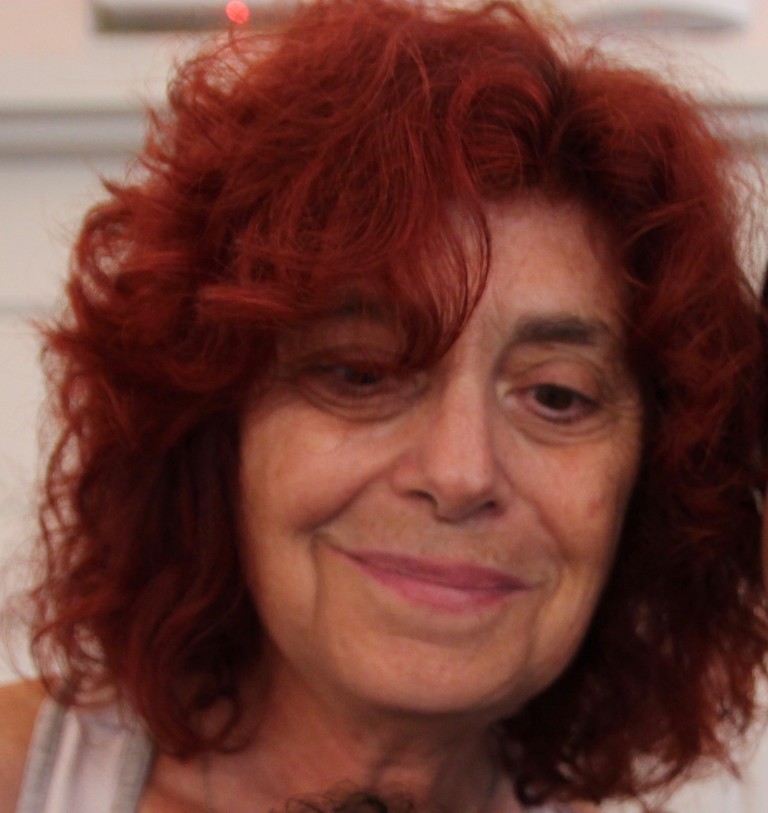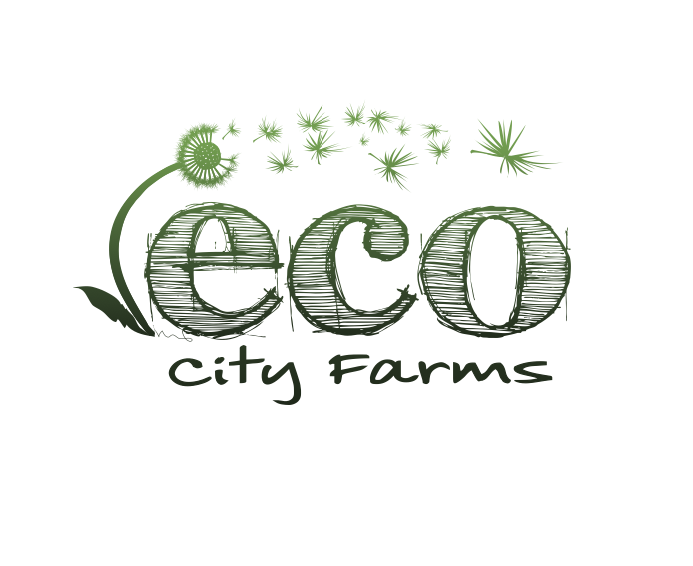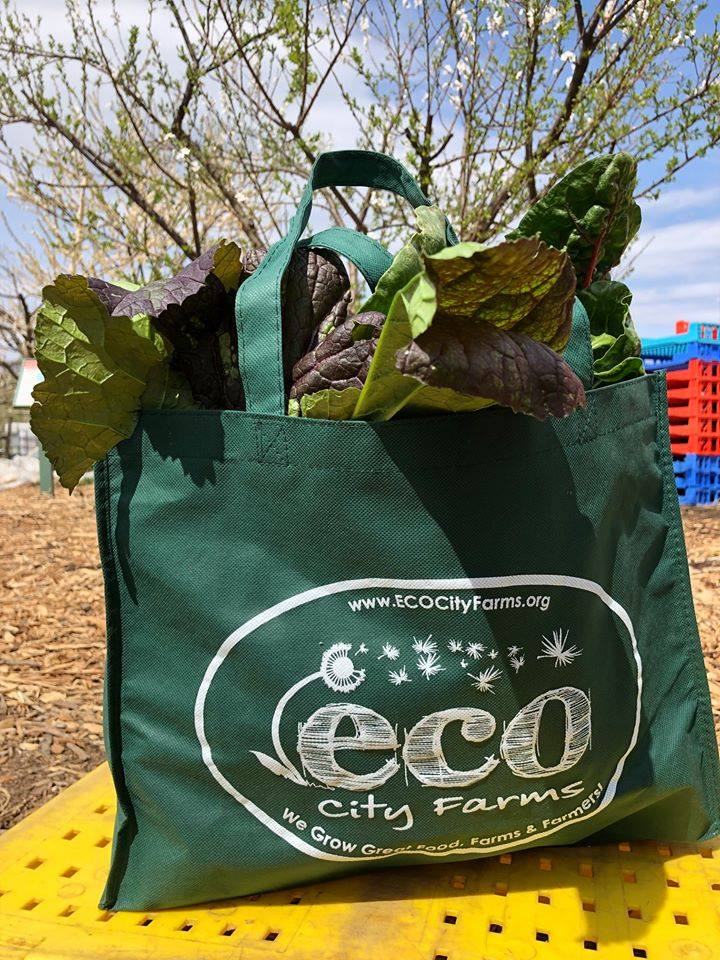
ECO City Farms is a non-profit training and learning urban farm in Maryland that aims to sustain the local environment as well as provide healthy food to the surrounding community. Margaret Morgan-Hubbard is the CEO and embraces the tenets of agroecology to enhance food security and access to nutrition to locals of Prince George’s County. ESAL discussed the holistic training practices and positive impact provided by ECO City Farms with Morgan-Hubbard.
MS: What motivated you to get involved in agroecology?
Morgan-Hubbard: I thought of it as a way of supporting people who couldn't necessarily join the mainstream economy but could find resources to support themselves and their families that were environmentally sound. I live in a county that doesn't have a sense of what it wants to be when it grows up. It's a majority minority county. It thinks of itself as a second class citizen. No matter what kind of power you have, if you're in a racist society, you feel like you have no power. So one of the things that I was looking at with other people is how do we help the county have an identity that it can be proud of?
MS: What inspired you to establish ECO City Farms?
Morgan-Hubbard: My basic concept is that healthy food has to be grown next to people and near people who eat it. There were many small working class communities here. I have a theory that a community is defined by the industries within its borders. There were many kinds of small car repair and even illegal car operations, and I was thinking that's not terribly uplifting. Having a huge urban farm with people trained and people eating healthy food and creating compost is very uplifting. So that was the picture I worked toward. Maryland is still a farming state, even though it doesn't produce much human food. It produces all kinds of industrial products and food for animals – not people. So that's another thing that I wanted to change. There's plenty of land in our county. I really wanted to use that land productively for feeding people.

Margaret Morgan-Hubbard.
MS: What was it like to start?
Morgan-Hubbard: I created my first farm at the University of Maryland. I'm really good at finding people who have money but don't know what to do with it. So I identified organizations that we could work with and help them spend their money. When I started the first farm at the university, it was next to a largely Latino community. We built a community garden for senior citizens. The university eventually lost interest in my project, so I took myself and some of my staff and went to the funders and politicians. They ended up giving me the money so I could launch ECO City in the community. I eventually went to Prince George's Community College, with who I've now been working for 12 years, and they give a commercial urban farming certificate to our students when they complete our training programs.
MS: Tell us more about the training that ECO City Farms provides to community members based on healthy land-use and ecology.
Morgan-Hubbard: For the last 14 years in different ways we've been training people to become urban farmers. We eventually started doing these training programs with Prince George's Community College and those training programs eventually got funded as part of the USDA beginning farmer training program. For the past six years, we've been running beginning farmer trainings with USDA funding. We train about 20 people a year. In addition to that, we have youth programs every summer for six weeks. We have 22 high school youth who come to ECO and learn everything from farming, to cooking, to eating healthy food, and learning about food justice. We also have about 40 apprentices a year who learn at our farm.
We've been what we call a teaching and learning farm. It's really important to me to add “and learning” because education is a reciprocal act. Every time you teach a person, you learn who they are and what they know as well. We try to share and pool our knowledge.
MS: Can you tell us more about the farmers that have been a part of ECO City Farms?
Morgan-Hubbard: We have a very diverse staff in terms of age, gender, and ethnicity. We actually recently hired a man who is a very young and agile 71-year-old. He's in many ways more youthful than many of our staff. He is from Cameroon, and he's been farming since he could stand. His father had a cocoa and coffee farm. Cameroon is now in the midst of a civil war between the French speaking and English speaking Cameroonians, and so much of his family came here. When we hired him this year, it was the first time in his life that he actually became a wage-earner. He now grows both the vegetables and herbs that we traditionally grow, plus a variety of Cameroonian foods, and the Cameroonian immigrants come and buy right at the farm from him.

ECO City Farms Logo.
MS: How has ECO City Farms grown since your first farm?
Morgan-Hubbard: We have three farms now. Our original one is on Maryland Park and Planning land. We were able to get a lease agreement for that land. Our second farm is on private land that couldn't be developed. It's on the land of a large 25 acre housing complex, where four large multifamily houses had originally stood. We had to pull brick and all kinds of rubbish out of the soil to farm it. Our first farm is about two acres, the second is 4 acres, and we just started an 11-acre farm for new farmers as an incubator farm. So there'll be 10 new farmers on that land who have graduated from our programs, but don't have personal land that they can use to farm. They will be launching their businesses together on this land.
MS: What does a sustainable food system mean to you?
Morgan-Hubbard: We don't have anything like a sustainable food system. Sustainable means that it can endure. A sustainable food system is one that produces affordable, healthy, toxic-free food, which is locally produced food accessible for everyone. The thing that really bothers me about the notion of organic is that it's become an elitist term for people who can afford it. And the people who can afford it are the least likely to be harmed by toxins. It's low-income people who are barraged by toxins in the air, in the soil, and in everything they consume that really need healthy toxic free organic food. We cannot afford to have food that is not organically grown – our produce is actually hyper- or super-organically grown.

Fresh vegetables produced by ECO City Farms.
MS: How does ECO City Farms promote justice and equity in the local community?
Morgan-Hubbard: We collectively have been working to rebuild the Anacostia River area and protect the Chesapeake Bay. When people think of Washington DC, they think of the Potomac River, because the Potomac is allegedly where all the history is. The truth is the Anacostia River was most important and along it is where low income people live. That's where we farm. It is critical to us that each of the port towns we work with has a farm or a community garden or both within the towns. Two of the towns didn’t even have groceries within their town limits. So that was part of the impetus we had. Part of it was saying, you know, folks here deserve locally grown and healthy food. Some of these areas have healthy food traditions that outdate the United States. One local town is home to one of the oldest Mexican communities in this part of the country. Until COVID, every past president of Mexico has been here to visit. I'd say almost every area has an intriguing history that dates back many centuries that has been buried. In digging up the land, we're also trying to connect with its history and help people take pride in where they live, where they came from and their interlocking food traditions. If you know nothing else about where you come from, you usually know what food it has. The last thing to be lost is food traditions.
The other thing that ECO has worked on is nutrition and health, and taught herbalism classes to link people's food traditions and taste buds with healthy versions of some of those foods. Local youth are learning at our farm how to tend land, grow vegetables, and they will learn to prepare and eat those vegetables too. At first, we had hired professional chefs who taught them fancy recipes. Now we teach them food prep skills and give them recipes and they teach themselves to make healthy dishes and share skills with one another. It's both less expensive for us and far more instructive for them. They feel much more empowered.
MS: Where do you see ECO City Farms in the future?
Morgan-Hubbard: The thing is that I never expected that I would be here 13 years later, but ECO has attracted a lot more government money than I ever thought was possible. The federal government, especially right now under President Biden, is in some ways trying to right some of the wrongs that are historic and long term. Many folks, particularly folks of color, have virtually been eliminated from farming. Over the years, their land has been unjustly taken away from them. They've lost land everywhere in the country. Now 80% of our trainees are people of color and largely women. Some of them are doctors and lawyers, but all of them want to know where their food comes from and how to grow it. All of them want more control of their food supply. So we've been trying to make that happen. For example, one group that is starting to work at our incubator farm called themselves “sisters of the soil” and are three accomplished black women who are producing healthy food for themselves and others.
What I see as my mission for the remainder of my life is to make it so that the people who grow and produce food are the people who make money from doing so. Not the big grocery store owners or investors. Not the head of Amazon who now owns Whole Foods, but rather to make it possible for real people to earn a living wage by growing food. That would make a huge change, because one of the things we figured out is that in this country, no one's ever made money simply by growing food for the rest of us. I would love to make my state of Maryland the “good food for all” state.
MS: How can other scientists and engineers contribute to your mission?
Morgan-Hubbard: We have such a limited view of who scientists are. They're academic people who have studied stuff, as opposed to people who have integrated their minds and bodies to make something happen with what we know. I consider our farmers at ECO scientists. We're not very well paid, but we are honored to do this work and excited about it and know a lot about it. I want to figure out how we create more of a cooperative rather than a competitive world. If you train people to compete, they compete. If you train people to cooperate, they cooperate.
Are you involved with an organization or effort that you think might be of interest to the ESAL community? Or have heard about an organization or initiative that you’d like to learn more about? Let us know here, and we may feature it in a future post.